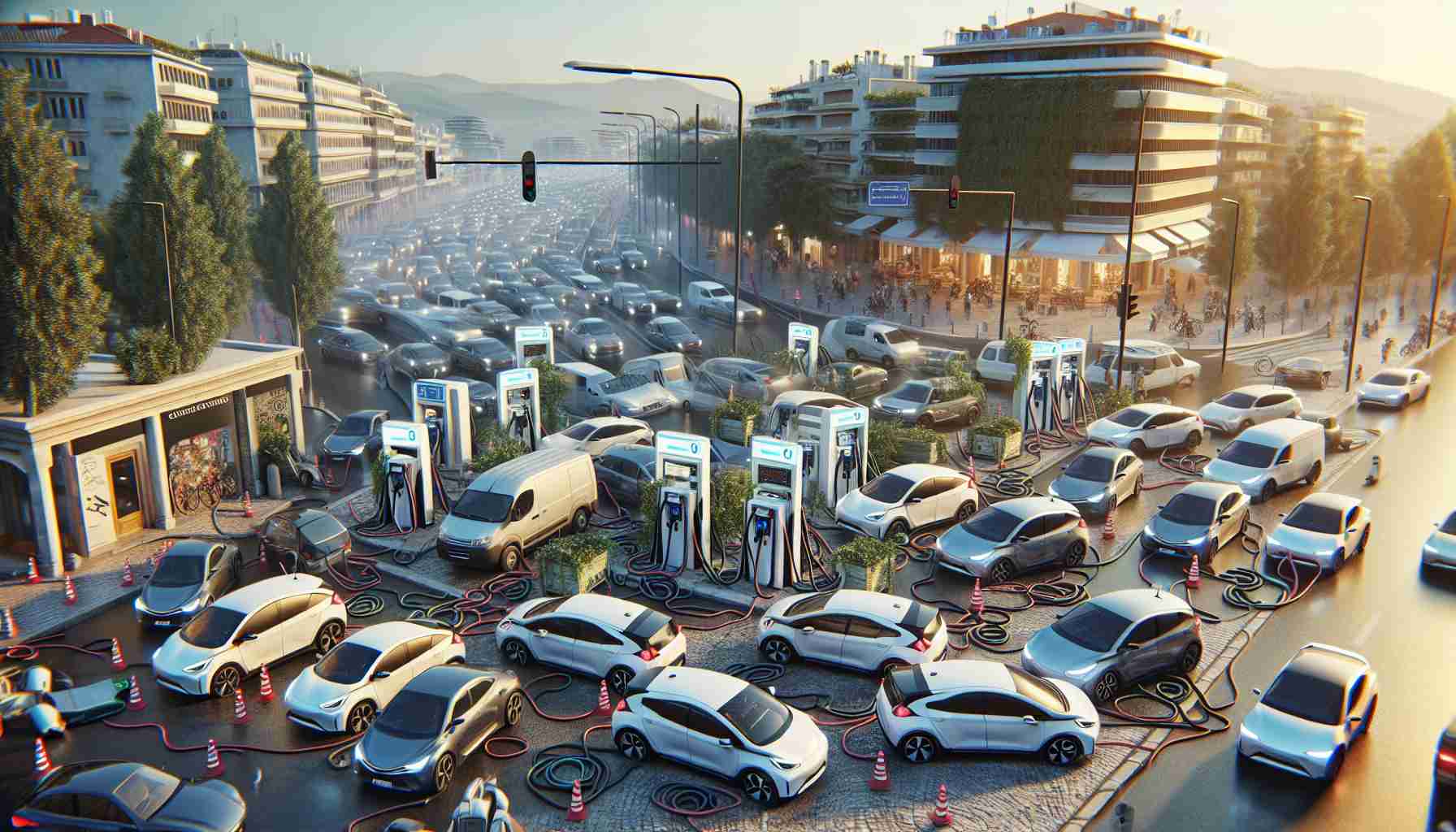
The surge in popularity of electric vehicles (EVs) in Greece is stirring mixed emotions, especially over the installation of charging stations in communal apartment spaces.
As more drivers transition to EVs and hybrids, the demand for accessible charging points has intensified. In densely populated urban areas with shared parking facilities, tensions often arise among residents when it comes to installations. Co-owners face the challenge of managing their rights and usage of communal resources while also discussing who picks up the installation costs.
Legalities complicate matters further. Upgrading electrical systems to support EV chargers is not merely straightforward. Older buildings may lack the necessary infrastructure, necessitating comprehensive technical assessments and the approval of a significant percentage of apartment owners—at least 50% plus one. This approval process can be sluggish, hampered by resident disputes and the need for professional evaluations.
Moreover, not everyone is on board with this transition. Some residents voice concerns over battery safety, increased electrical bills, and the potential loss of parking spots. Such worries can lead to official objections, stalling installation efforts.
Yet, there is a silver lining. New residential complexes are mandated to incorporate EV-ready electrical systems from the outset. For older structures, government incentives could facilitate upgrades and ease the regulatory process. By promoting the advantages of EV ownership, such as environmental benefits and property value enhancement, community acceptance may gradually improve.
Charging Ahead: Navigating the Electric Vehicle Revolution in Greece
The Growing Popularity of Electric Vehicles in Greece
With the increase in environmental awareness and the push toward sustainable transportation, Greece is witnessing a significant shift towards electric vehicles (EVs). This transition, however, is not without its complications, especially regarding the installation of charging stations in communal apartment settings. As EV adoption grows, so does the pressing need for efficient and accessible charging solutions, particularly in urban areas where space and resources are shared.
Key Challenges in Charging Station Installation
1. Infrastructure Limitations: Many older buildings in Greece were not designed to accommodate the additional electrical load that EV chargers require. As a result, significant upgrades to electrical systems are often necessary. This involves extensive technical assessments, which can delay implementation.
2. Legal and Approval Hurdles: The approval process for installing charging stations can be cumbersome. It requires consensus among apartment owners, with at least 50% plus one approval needed. This threshold can be difficult to achieve, especially if there are dissenting opinions among residents.
3. Financial Concerns: Questions about who bears the costs of installation can lead to disputes. Some residents express fears about higher electricity bills or loss of valuable parking space, complicating the discussions further.
Potential Solutions and Innovations
Despite the challenges, there are several positive developments on the horizon:
– Incentives for Upgrades: The Greek government is beginning to offer incentives aimed at upgrading infrastructure in older buildings to support EV charging. These incentives may alleviate some financial burden on residents and encourage adoption.
– New Regulations for Modern Builds: Recent regulations mandate that new residential complexes be built with EV-ready electrical systems, ensuring that future installations will be simpler and more efficient.
– Community Engagement: Promoting awareness of the long-term benefits of EVs—including lower emissions, reduced parking congestion, and potential increases in property values—can help sway public opinion in favor of charging station installations.
Pros and Cons of EV Adoption in Communal Living Spaces
Pros:
– Environmental Impact: EVs contribute significantly to reducing greenhouse gas emissions.
– Convenience: Having charging stations readily available enhances the usability of EVs for residents.
– Potential Increase in Property Value: Properties with EV charging capabilities may attract more interested buyers.
Cons:
– Initial Costs: The upfront costs of installing chargers can be a barrier for many residents.
– Space Constraints: The need for parking multiple EVs may create issues in tight communal areas.
– Concerns Over Safety and Usage: Worries about battery safety and increased electrical demand remain prevalent among some apartment dwellers.
Looking Ahead: Trends in EV Infrastructure
As the push for greener transportation continues globally, Greece’s response to the surge in electric vehicle usage will be critical. With government initiatives aimed at making EV charging accessible in shared living environments, it is conceivable that charging stations could become as commonplace as traditional gas pumps. The transition may demand patience and collaboration among residents, policymakers, and industry stakeholders.
For more information on advancements in electric vehicles and infrastructure, visit Electric Vehicles Greece.



